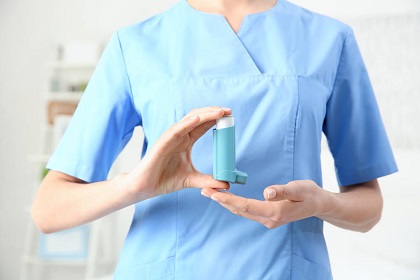Search
Upper respiratory infection (URI), also known as the common cold, is caused by a group of viruses. They can be passed between people by sneezing, coughing, and touching surfaces with the viruses on them. You can become infected if the lining of your eyes, nose or mouth comes in contact with the virus when you rub your nose or touch your face with contaminated hands. The usual symptoms are nasal congestion, runny nose and sneezing.
The common cold weakens your immune system and at times leads to a new viral infection or bacterial infection. This can cause other serious problems such as sinusitis, infection of the middle ear, and pneumonia. Thus it is important that you take good care of yourself when you get the common cold to prevent these problems.
Do I need antibiotics?
Antibiotics are not useful for treating the common cold. If fact, taking antibiotics when not needed can negatively affect your health. The common cold gets better on its own with at-home care over time, even without any treatment.
What medicines will my doctor give me?
Depending on your symptoms, your doctor may give you medicines to relieve your runny nose, nasal congestion, cough, pain, or fever.
What can I do at home to feel better?
DOs
• Get plenty of rest
• Drink lots of fluids to keep the lining of your nose and throat moist
• Add moisture to the air in your home. Use a cool-mist humidifier or vaporizer and be sure to clean it daily
DON'Ts
• Avoid smoking or secondhand smoke
• Avoid blowing your nose forcefully
When can I return to work? When can my child return to school?
You can resume your usual activities at least 24 hours after your fever totally subsides and when you feel better. Wear a mask if you still have a cough or runny nose, and practice good hygiene etiquette, like covering your mouth when sneezing or coughing to prevent the spread of infection.
How can I prevent getting a URI again?
Reduce your chances of getting a viral infection by exercising regularly and eating healthily.
Good hand washing habits, like washing your hands with soap and water before eating or after touching dirty surfaces, can prevent the spread of infection.
Alcohol-based hand rubs are a good alternative for disinfecting hands if a sink is not available. Ensure that you thoroughly wash every part of your hands.
When should I see my doctor again?
Please contact your doctor if you have:
• Worsening symptoms after 3 to 5 days
• A fever of 38.5°C or above lasting more than three days
• Nasal congestion that does not improve over 14 days
• Signs or symptoms of an ear infection - pain, ear discomfort, discharge from ear, difficulty hearing, fussiness (children), etc.
• Severe body aches, joint pain
• Rash
• Nausea or vomiting
When do I need to go to the hospital or emergency department?
Call the ambulance or go to the nearest hospital right away if you have:
• Chest pain
• Difficulty breathing
• Shortness of breath
• For children:
○ Increased irritability or decreased responsiveness
○ Poor oral fluid intake
With reference to www.uptodate.com
Click the link for more information on Family Medicine Clinical Service
Click the link for more information on Pediatrics Clinical Service
Click the link for more information on Emergency Medicine Clinical Service
Click the link for more information on Respiratory Medicine Clinical Service











